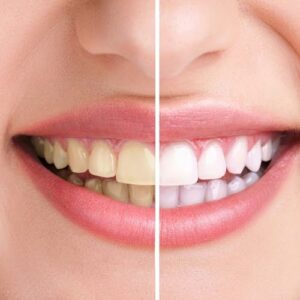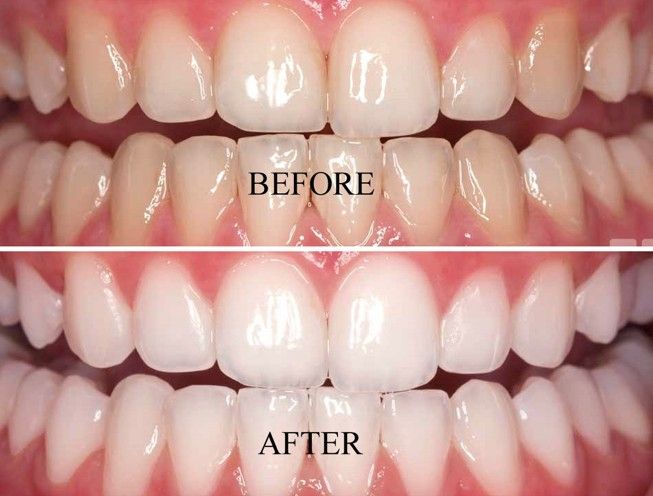DENTAL BLEACHING
Dental bleaching is a popular cosmetic procedure designed to whiten and brighten the appearance of your teeth. As a common solution for combating tooth discoloration, it offers a straightforward way to achieve a radiant smile. This guide provides an in-depth look at dental bleaching, including its benefits, methods, and considerations.

What is Dental Bleaching?
Dental bleaching, often referred to as teeth whitening, is a cosmetic treatment that aims to lighten the color of your teeth. The procedure works by breaking down stains and discoloration on the tooth enamel, resulting in a whiter and more attractive smile. Bleaching can be performed in a dental office or at home using over-the-counter products.
Benefits of Dental Bleaching
Enhanced Appearance: One of the primary benefits of dental bleaching is the improvement in the overall appearance of your smile. Whitening your teeth can boost your confidence and make you feel more self-assured in social and professional settings.
Quick Results: Many bleaching treatments offer noticeable results in a relatively short period, with some professional procedures providing significant whitening in just one visit.
Customizable Options: Whether you choose in-office treatments or at-home products, there are various options available to suit different needs, budgets, and preferences.
Effective on Stains: Dental bleaching can effectively target stains caused by coffee, tea, red wine, tobacco, and other substances, restoring the brightness of your teeth.

Types of Dental Bleaching
In-Office Whitening: Performed by a dental professional, in-office whitening involves the application of a high-concentration bleaching agent to the teeth. This method often includes the use of a special light or laser to enhance the effectiveness of the whitening agent. Results are usually visible after a single session.
At-Home Whitening: At-home whitening products include gels, trays, and strips that can be used at your convenience. These products contain a lower concentration of bleaching agents compared to in-office treatments. While they may take longer to produce results, they can be a cost-effective alternative.
Whitening Toothpaste: Some toothpaste brands contain mild abrasives and chemical agents that help remove surface stains. While they do not provide dramatic whitening, they can contribute to a gradual improvement in tooth color.
The Dental Bleaching Procedure
Initial Consultation: Before starting any whitening treatment, consult with your dentist to assess the condition of your teeth and determine the most suitable whitening method. Your dentist will also check for any underlying issues, such as cavities or gum problems, that might affect the outcome.
Preparation: For in-office whitening, the dentist will clean your teeth and may apply a protective gel or rubber shield to protect your gums and soft tissues from the bleaching agent.
Application: The bleaching agent is applied to your teeth, and the treatment may be enhanced with a light or laser. The process typically lasts between 30 to 60 minutes, depending on the treatment used.
Post-Treatment Care: After the procedure, your dentist may provide instructions on how to maintain your newly whitened teeth. This might include avoiding certain foods and beverages that can cause staining and practicing good oral hygiene.

Considerations and Risks
Sensitivity: Some people may experience tooth sensitivity or gum irritation following bleaching treatments. These effects are usually temporary but can be minimized with the use of desensitizing products or adjusting the treatment.
Not Suitable for Everyone: Dental bleaching is not effective on all types of discoloration. For example, it may not work well on intrinsic stains caused by trauma or medications. Your dentist can help determine if alternative treatments, such as veneers or bonding, might be more appropriate.
Maintenance: To maintain the results of your whitening treatment, regular touch-ups and good oral hygiene practices are essential. Limiting the consumption of staining foods and drinks can also help prolong the effects.




The Team
Our Experts




